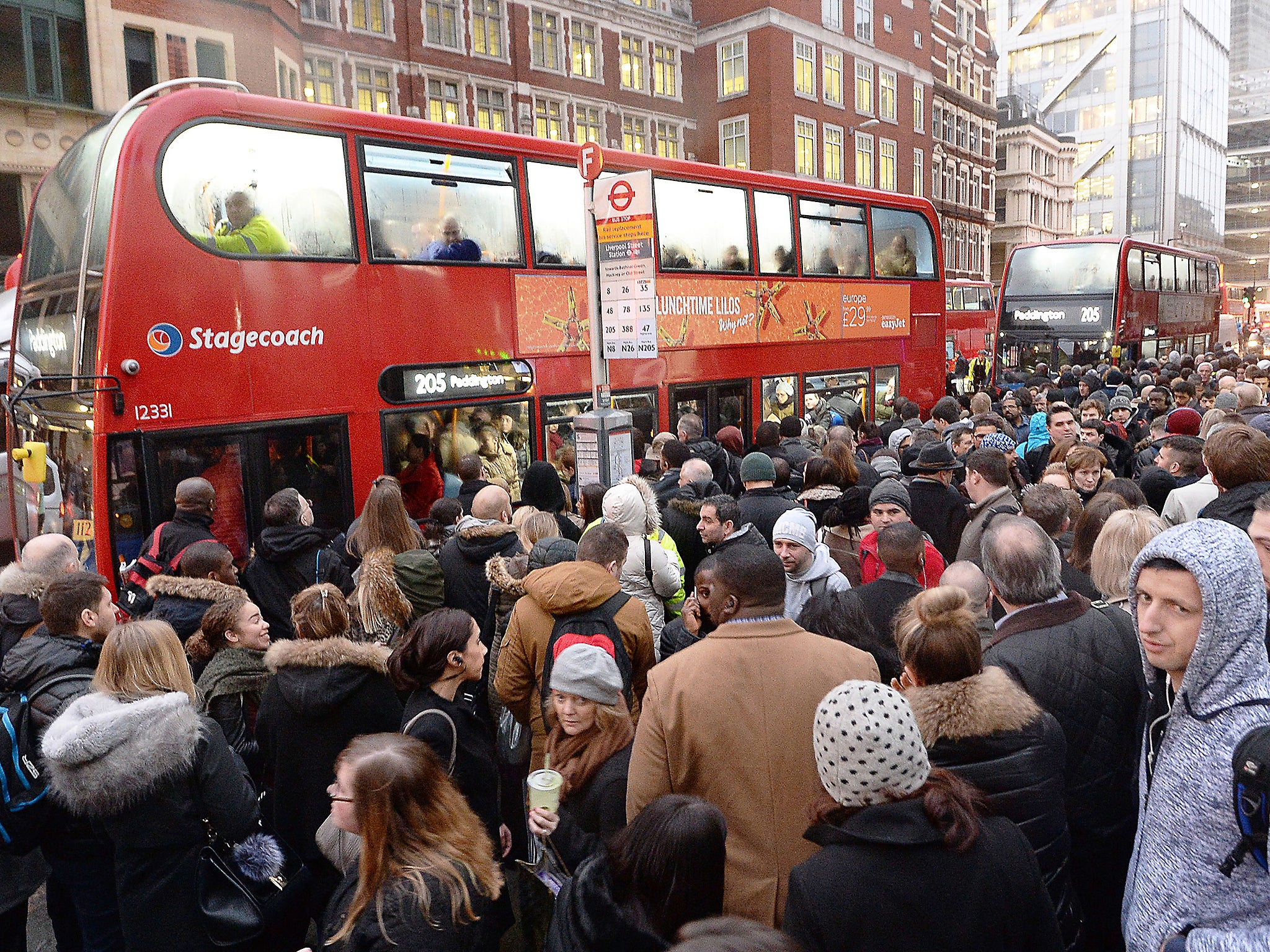Sadiq Khan's uninspiring reaction to the Tube strike today summarises everything that's gone downhill about London
London’s rents continue to rise: its number of wealthy landlords owning ex-council properties which are sold back to poorer young people for astronomical rental fees is through the roof. Is it any wonder so many twenty-somethings are now fleeing our capital city for Berlin?

Your support helps us to tell the story
From reproductive rights to climate change to Big Tech, The Independent is on the ground when the story is developing. Whether it's investigating the financials of Elon Musk's pro-Trump PAC or producing our latest documentary, 'The A Word', which shines a light on the American women fighting for reproductive rights, we know how important it is to parse out the facts from the messaging.
At such a critical moment in US history, we need reporters on the ground. Your donation allows us to keep sending journalists to speak to both sides of the story.
The Independent is trusted by Americans across the entire political spectrum. And unlike many other quality news outlets, we choose not to lock Americans out of our reporting and analysis with paywalls. We believe quality journalism should be available to everyone, paid for by those who can afford it.
Your support makes all the difference.When Sadiq Khan became Mayor of London, he promised that under his tenure there would be no more strikes on the Tube, considering the uproar it unleashed under Boris Johnson’s premiership. Yet here we are now in the midst of another Tube strike, with ongoing Southern rail action thrown in. It’s uncontroversial to say that getting to work on time – or, in fact, getting to work at all – has been a gamble for many in London for quite some time.
Khan claims that “London is open”, yet the Zone 1 Tube stations today most definitely are not.
The reason staff are striking is reasonable: Transport for London is cutting staff jobs in places such as ticket halls, claiming that machines can do the same job as people, which raises safety concerns and would lead to jobs losses across the network. So why has it been so hard for Sadiq Khan, who memorably called strikes a sign of failure, to prevent this from happening?
So far, Khan has enjoyed a honeymoon period as Mayor, with the night Tube finally opening (although that was Boris’s legacy, if we’re honest) and the introduction of the bus hopper fare. Leavesgate on the Piccadilly line was the beginning of the end for this honeymoon (“leaves on the line”, causing untold crises); travel chaos has plagued Tube and rail travellers for months now, and this strike could be the straw that breaks the horse's back. The best he’s managed today is a tweet that thanked TfL staff “who have kept 67 per cent of stations open during today’s unnecessary strike action”. Not exactly inspiring.
While the public transport in the North is improving, London’s is deteriorating. And pollution has become dangerously high in the city, with authorities advising people not to stand at bus stops, by busy roads or near Tube stations when the levels are way above safe. That’s pretty difficult, considering many cannot get to work or get to the shops without doing one of those three things, and the least safe times seem to correlate with the times when anyone on a nine-to-five schedule has to get to work. Paris has made their transport free for periods of time, alternated the traffic and is now trying to pedestrianise large swaths of the city. London's solution? Don’t go outside.
Meanwhile, London’s rents continue to rise: its number of wealthy landlords owning ex-council properties that are sold back to poorer young people for astronomical rental fees is through the roof. Is it any wonder so many twenty-somethings are now fleeing our capital city for Berlin, New York and Melbourne?
London is no longer the young person’s utopia that it once was. Many left university and headed straight to the city to “follow their dreams”, but with unpaid internships, low wages and a cost of living that has gone beyond ridiculous, it is no wonder that the creative set in particular is now seeking employment in other global hubs.
Many writers that I know struggle – some have ended up in hostels, refuges and tents in people’s back gardens, and one even inhabited an airing cupboard to be able to live and work in London. Unless something can be done about the high costs, increasingly brutal corporate culture resulting in endless strikes, and the economical factors that make London almost impossible to live in on a normal wage, talent will bleed out. And that would be a post-Brexit nightmare.
There was real hope when Sadiq Khan became the Mayor of London. He is from London, he is relatable and he understands the issues Londoners face – he was not a detached figure like Boris Johnson who, I'm assuming, has never even met someone who’s had trouble paying for his rent or Oyster card. But the chaos today reminds us of the fact that London hasn’t actually made much improvement since he took the helm. It’s time to tackle the issues facing real Londoners – strikers and commuters alike – before a Brexit brain drain takes hold.
Join our commenting forum
Join thought-provoking conversations, follow other Independent readers and see their replies
Comments